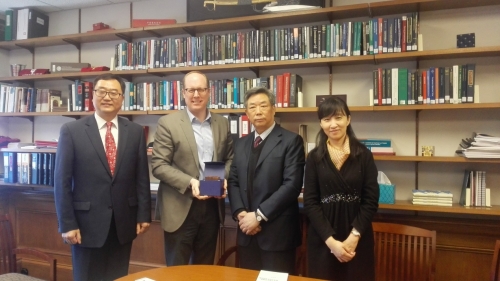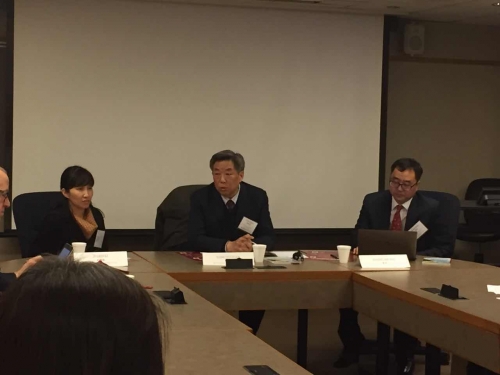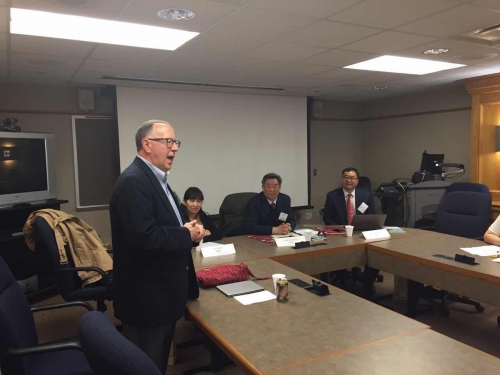During Feb 25th and 29th, 2016, invited by Professor Austen L. Parrish, dean of the IU Maurer School of Law, Professor Yuguan Yang (member of the "2011 Plan" China Collaborative Innovation Center of Judicial Civilization, vice-dean of the Procedural Law Research Institute, CUPL), Professor Gefei Ji (vice-director of the Institute of Civil Procedure Law, which is a branch of the Procedural Law Research Institute, CUPL), and Professor Zhong Zhang (vice-dean of the Institute of Evidence Law and Forensic Science, CUPL), visited Indiana University, had discussions with Professor Parrish, Professor Joe Hoffmann, Professor Aviva Orenstein, and attended the lectures "Comparative Study of China-U.S. legal System" which the Maurer School of Law hosted for them.

Professor Guanyu Yang gave an English speech named "Implementing the Exclusionary Rule in China", introduced the improvement of China exclusion rules of illegal evidence since the amendment of Criminal Procedural Law in 2012, analyzed the theoretical and practical problems when applying these exclusion rules of illegal evidence, and described in detail the scope and the burden of proof, as well as the standard of proof of the excluding illegal evidences.
Professor Gefei Ji gave an English speech on Western Mechanisms and Chinese Solutions on the Effect of "Issue Preclusion": From the Evidence Law Perspective, introducing the differences on the effectiveness of argumentation between the two major legal systems, and the reasons. Furthermore, she thought it feasible to talk about this question from the perspective of evidence law on the basis of emphasizing the consistency of judgments, according to the Chinese situations, but the rules should be specified.
Professor Zhong Zhang gave an English speech on topic of "The Implementation and its problems of Evidence Law in China", introduced the implementation of the "China Evidential Justice Index", the practical situations and problems of Chinese evidence law in judicial practice that can be seen from the collected data, including defense lawyers gathering evidence, witnesses testifying in court, judicial identification, exclusion of illegal evidences, etc.

During the lecture, the three professors had an interaction with the Maurer professors and students. Professor Hoffmann and professor Orenstein gave high praise and comments on these lectures. They think China has achieved a great improvement in procedural and evidence systems,and some aspects are meaningful for them to learn. During the visit, the three professors also had a meeting with Chinese students in the university. The students are very happy to see Chinese professors giving lectures here, and thought highly of these lectures.
